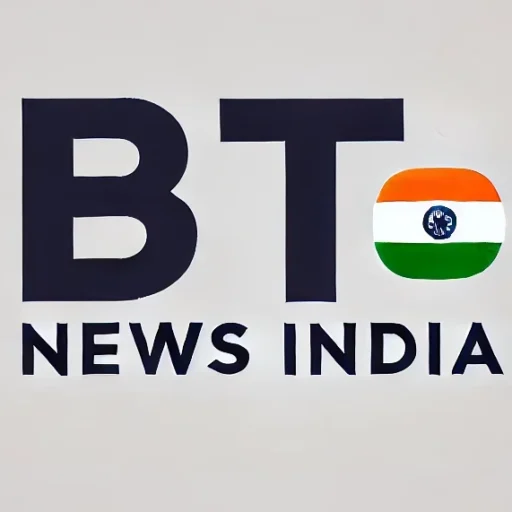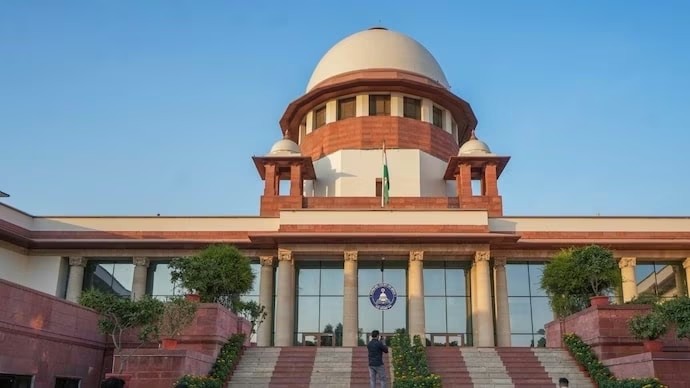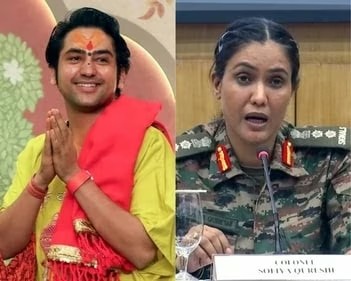States Free to Defy National Education Policy in Historic Ruling!
Published on: May 12, 2025
By: BTI
Location: New Delhi, India
In a jaw-dropping verdict that has sent shockwaves across India, the Supreme Court today declared that states are under no obligation to implement the National Education Policy (NEP) 2020, effectively handing state governments a golden ticket to chart their own educational destinies. The ruling, delivered by a bench led by Justices JB Pardiwala and R Mahadevan, has sparked a firestorm of debate, with some hailing it as a triumph for federalism and others warning of an impending educational apocalypse.
The case began with a fiery Public Interest Litigation (PIL) filed by advocate GS Mani, a BJP member, who demanded that Tamil Nadu, Kerala, and West Bengal be forced to adopt the NEP, including its controversial three-language formula. Mani argued that these states’ refusal to implement the policy was a blatant violation of constitutional rights, accusing them of playing political games by framing the NEP as a covert attempt to impose Hindi on non-Hindi-speaking regions. But the Supreme Court wasn’t having it.
Also read this- https://www.btnewsindia.com/mayor-felicitates-board-exam-toppers-encourages-bright-students/ https://www.btnewsindia.com/rajput-community-marks-maharana-pratap-jayanti-with-grand-unity-procession/
In a dramatic courtroom showdown, Justice Pardiwala reportedly quipped, “You live in Delhi now, don’t you? Learn Hindi there if you want—nobody’s stopping you!” The bench went on to deliver a stinging rebuke, stating that under Article 32 of the Constitution, the court’s powers are limited to protecting fundamental rights, not strong-arming states into adopting central policies. “Whether states should adopt the NEP is a vexed issue,” the court declared. “We cannot directly compel a state to adopt a policy like the NEP 2020. But we can step in if a state’s actions—or inaction—trample on citizens’ rights.”
The ruling has ignited a political powder keg. Tamil Nadu Chief Minister MK Stalin, a vocal critic of the NEP, took to X to proclaim, “This is a victory for Tamil Nadu’s sovereignty and our fight against Hindi imposition! We will protect our language and culture at all costs!” Meanwhile, Union Education Minister Dharmendra Pradhan fired back, warning that “states rejecting the NEP risk plunging their education systems into chaos and denying students a world-class framework.”
Critics of the verdict fear it could fracture India’s education system, creating a patchwork of wildly different curricula across states. “This is a recipe for disaster!” thundered a Delhi-based educationist, who requested anonymity. “Without the NEP’s unified vision, we’ll have students in Tamil Nadu learning one thing, kids in Uttar Pradesh learning another, and total confusion for employers and universities. It’s educational anarchy!”
On the other side, champions of state autonomy are popping champagne. “The Supreme Court has upheld the spirit of cooperative federalism,” tweeted
@kamarkhan2244
, echoing sentiments across X. “Education is on the concurrent list—states have every right to adapt or reject the NEP as they see fit!” Others pointed out that the NEP’s three-language formula has been a lightning rod for controversy, with southern states accusing the Centre of cultural overreach
Adding fuel to the fire, the court also questioned Mani’s standing to file the PIL, noting that he’s a Delhi resident with no direct stake in Tamil Nadu’s education policies. “Who are you, and why are you so concerned with the NEP?” Justice Pardiwala asked, in a moment that reportedly left Mani scrambling for answers. The bench dismissed the petition, suggesting that the NEP’s merits could be examined in a “more appropriate proceeding”—a cryptic hint that has legal experts buzzing about future battles.
The ruling comes at a time when Centre-state tensions are already at a boiling point. Tamil Nadu has clashed with the Union government over funding cuts under the Samagra Shiksha scheme, which it claims are retaliation for its NEP defiance. Kerala and West Bengal, too, have dug in their heels, with their chief ministers vowing to prioritize local languages and curricula over what they call a “one-size-fits-all” policy.
As the dust settles, the implications of this verdict are nothing short of seismic. Will states now craft their own education policies, turning India into a laboratory of competing systems? Or will the Centre find new ways to pressure non-compliant states into falling in line? One thing is certain: the Supreme Court’s ruling has thrown open the floodgates for a fierce tug-of-war over the future of Indian education.




